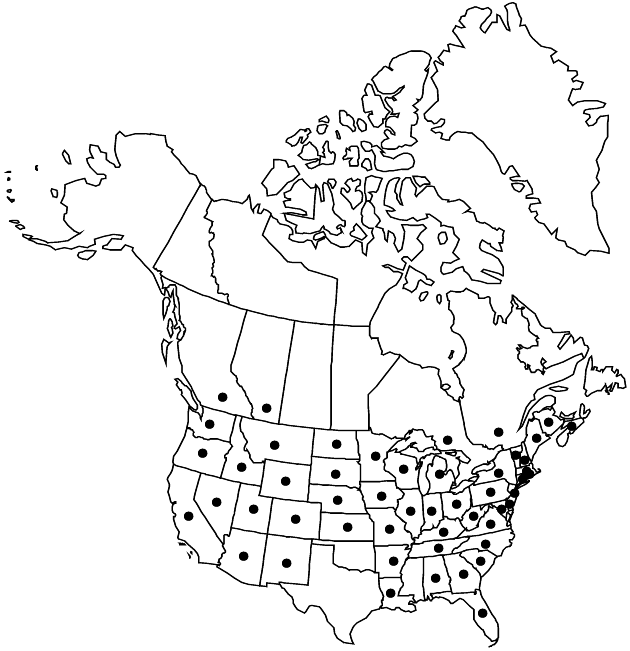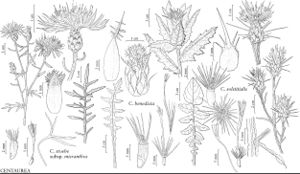Centaurea stoebe subsp. micranthos
Repert. Spec. Nov. Regni Veg. Beih. 30(2): 766. 1931.
Perennials, 30–150 cm. Stems usually many, loosely gray-tomentose, branches ascending. Leaves loosely gray-tomentose or becoming glabrous, resin-gland-dotted; basal and proximal cauline petiolate, blades 10–15 cm, margins 1–2 times divided into linear or oblong segments; mid and distal cauline smaller, entire or dissected. Heads usually many in open cymiform arrays, pedunculate. Involucres ovoid, 10–13 mm. Phyllaries: bodies pale green or pink tinged, ovate (outer) to oblong (inner), with several prominent parallel veins, glabrous or finely tomentose, erect appendages decurrent on distal phyllary margins, dark brown or black, scarious, fringed with slender teeth. Florets 30–40; corollas pink to purple (white), those of sterile florets 15–25 mm, slender or somewhat enlarged, those of fertile florets 12–15 mm. Cypselae whitish or pale brown, 3–3.5 mm, finely hairy; pappi in 1–2 series, of many white, unequal, stiff bristles to 5 mm. 2n = 36.
Phenology: Flowering summer (Jun–Sep).
Habitat: Roadsides, fields, open forests
Elevation: 50–2800 m
Distribution

Introduced; Alta., B.C., N.B., N.S., Ont., Que., Ala., Ariz., Ark., Calif., Colo., Conn., Del., Fla., Ga., Idaho, Ill., Ind., Iowa, Kans., Ky., La., Maine, Md., Mass., Mich., Minn., Mo., Mont., Nebr., Nev., N.H., N.J., N.Mex., N.Y., N.C., N.Dak., Ohio, Oreg., Pa., R.I., S.C., S.Dak., Tenn., Utah, Vt., Va., Wash., W.Va., Wis., Wyo., Europe.
Discussion
Selected References
None.
